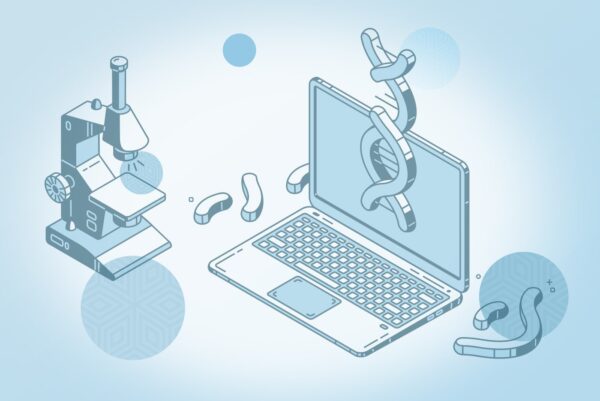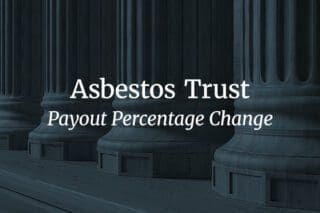As a cornerstone of the moonshot effort to eliminate cancer as we know it, the Obama administration has pledged to make the sharing of research data – among scientists and with cancer patients – a priority. Paul Zygielbaum knows firsthand how important this is for patients with asbestos-related cancers.
More than a decade ago, Zygielbaum attended a medical conference sponsored by the Mesothelioma Applied Research Foundation (MARF). Zygielbaum, an aerospace engineer and businessman, had recently been diagnosed with malignant peritoneal mesothelioma, and he already underwent surgery and intraoperative chemotherapy treatments (HIPEC). At the conference, he was particularly interested in a panel where researchers and physicians discussed the findings of clinical trials involving patients with the disease.
Problems with Sharing Cancer Research
As Zygielbaum recalled, the panel’s moderator mentioned that of his 27 test subjects, three had not undergone radiation, for reasons unrelated to the clinical trial. (At the time, many peritoneal mesothelioma patients, whether participating in clinical trials or not, had undergone multimodal treatment, including whole abdominal radiation.) During the question and answer period, Zygielbaum asked whether there was any indication that the omission of radiation treatment had any effect on the survival of these subjects. The answer was no.
“I followed up with a question to the whole panel as to whether the trial results indicated that whole abdominal radiation had any effect on the survival statistics,” Zygielbaum said in a recent interview. “The panelists spent a few moments looking at each other, and some shook their heads no.”
“The audience, which comprised medical people, patients – many of whom had undergone whole abdominal radiation – and family members, reacted with shock,” he continued. “The next year, there was a similar panel at the conference, and I asked whether it was still the recommendation that malignant peritoneal mesothelioma undergo whole abdominal radiation. The answer was that this questions was under consideration. The third year, I asked again that question, and the answer was that whole abdominal radiation was no longer being recommended in cases of malignant peritoneal mesothelioma.”
For Zygielbaum, the episode epitomized much that has long been wrong with cancer research – the reluctance of researchers to freely share their data with each other and with patients and their advocates.
“If researchers saw that radiation was not making a difference to survival – wouldn’t you want to stop doing it?” he told Mesothelioma.com. “I don’t think they (researchers) share well among themselves… While I understand the imperative for scientific rigor, I think there is an equally compelling imperative for drawing practical conclusions as quickly as possible, to avoid superfluous experimentation that causes needless suffering of those subjects.”
“If one person could elicit such an important outcome in a small case like that, what could be done on a larger scale in the field of medical research?” he said.
The Moonshot and Increasing Cooperation
Paul Zygielbaum isn’t the only one asking that questions these days.
During his State of the Union address in January 2016, President Barack Obama announced the Cancer Moonshot Initiative to accelerate cancer research and end cancer as we know. The initiative, which is being led by Vice President Joe Biden, called for breaking down barriers to progress by calling on cancer researchers in universities, private industry and government to freely share their data and results of clinical trials.
“Too many American families know all too well the devastation cancer can bring,” states a fact sheet released by the White House in February 2016. “More than 1.6 million new cases of cancer will be diagnosed and cancer will kill an estimated 600,000 Americans in 2016. Cancer doesn’t discriminate – it strikes young and old, family and friends, neighbors and co-workers.“
“Data sharing can break down barriers between institutions, including those in the public and private sectors, to ensure maximum knowledge gained and patients helped,” the White House fact sheet said. “The cancer initiative will encourage data sharing and support the development of new tools to leverage knowledge about genomic abnormalities, as well as the response to treatment and long-term outcomes.”
In September, Biden announced steps making it easier for patients to identify and enroll in clinical trials and increase transparency in reporting trial results. In an article published in Time, Biden outlined a series of steps intended to make it easier for patients to find and enroll in clinical trials and ensure that researchers shared information about clinical trial results with the public and each other.
“Right now,” Biden wrote, “a lot of researchers don’t share information gathered from clinical trials – whether the outcomes are good or bad. But with the step we’re taking today, researchers have to share these results. More access to data means faster discoveries for researchers and more informed decisions for patients.”
Among other things, Biden wrote, those steps included a new, user-friendly database allowing patients and their advocates to more easily search for clinical trials and requirements that researchers share information with the public about the results of clinical trials – whether those outcomes are good or bad. “More access to data means faster discoveries for researchers and more informed decisions for patients,” Biden wrote.
How Failing to Share Hurts Patients
The failure to freely share data is a problem for all cancer patients, of course, but it has been particularly worrisome for patients who have rare cancers like mesothelioma, because there are fewer research projects and clinical trials. As a result, researchers and advocates for asbestos-related diseases said, the Cancer Moonshot’s emphasis on sharing of data could be particularly helpful to patients with asbestos-caused cancers, such as mesothelioma.
“I think this has been somewhat of a problem – the lack of a mechanism to share data said Dr. Richard Lemen, a former assistant U.S. Surgeon General and co-chair of the Asbestos Disease Awareness Organization (ADAO) Science Advisory Board. He continued, “Science can be very competitive,” he said, and researchers have tended to “keep findings close to their chest. I think it’s a problem both for rare and more frequent types of cancer.”
“Any sharing of data and opening up transparency among researchers is useful in combating any type of cancer,” Lemen added.
Another asbestos expert, Dr. Arthur Frank, Professor of Public Health and Chair Emeritus of the Department of Environmental and Occupational Health at the Drexel University School of Public Health and the other co-chair of the ADAO Science Advisory Board, agreed the Cancer Moonshot’s emphasis on sharing of information was a good step. But he was also somewhat critical of the Cancer Moonshot effort, saying it placed undue emphasis on treatment and detection at the expense of prevention.
Among other things, Frank notes that of the 10 recommendations issued by a Blue Ribbon panel advising the Moonshot Initiative, only one specifically deals with expanding use of proven prevention strategies. “It’s heavily weighted for treatment, and way underweighted for prevention,” Frank said.
Scientists and government agencies have warned that any exposure to asbestos carries risks. Though asbestos is now banned in 52 nations, dozens of countries still use, import, and export asbestos and asbestos-containing products, and it is still legal in the United States – despite an incorrect belief among many Americans that it was banned years ago. In addition to the United States, those countries where asbestos is still legal are primarily developing nations in Asia and Eastern Europe that are desperate for industrial growth and often turn a blind eye to the health and environmental consequences of asbestos exposure.
Can the Cancer Moonshot Improve Mesothelioma Research?
Linda Reinstein, president of the ADAO, which represents asbestos victims and has called for a ban on asbestos, said that the Cancer Moonshot is a hopeful step in the fight against asbestos-related disease.
“The (Obama) Administration is calling out cancer in a big way by establishing the Cancer Moonshot led by Vice President Biden,” she said. “While promising research continues, the only two ways to eliminate asbestos-caused cancers are prevention and a cure. The Cancer Moonshot gives mesothelioma patients and families hope while we wait for early detection and treatment. The time is now for collaborative prevention, policy and research efforts to intersect.”
With the election of Donald Trump as the next president, the exact future of the Cancer Moonshot program is uncertain. What is clear is that the sharing of information among researchers and with patients and their advocates is crucial in the effort to accelerate cancer research.
Paul Zygielbaum has known that fact for more than a decade, when he first began attending medical conferences about mesothelioma research and treatment. He’s survived four surgeries and three chemotherapy regimens since being diagnosed with mesothelioma in 2004, and most recently has benefited from infusions of two new immunotherapy drugs, Keytruda®(pembrolizumab) and Yervoy (ipilimumab). The use of immunotherapy drugs, including Keytruda, are aimed at unleashing the body’s immune system to fight off cancer cells. Immunotherapy is another key part of the Moonshot program.
Since being diagnosed, Zygielbaum has become an advocate for victims of asbestos-related disease, and he’s optimistic that the Moonshot initiative will bring about a fundamental shift in cancer research.
“Cancer research is an industry, with competition and personal, professional and financial interests that drive behavior of researchers and could be construed as corrupting the ethical underpinnings of (clinical) trial design,” he said. “In addition, medical data is hoarded for scientific reasons until analysis and conclusions justify publication, and publication happens long after the creation of data. So, progress drags, and sometimes research programs continue past ethical acceptability.”
“I hope that Biden’s program causes a change in the overall way that our society attacks cancer research,” he said.





